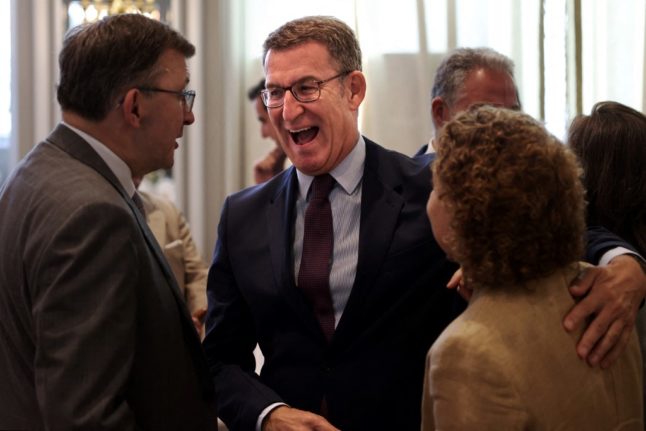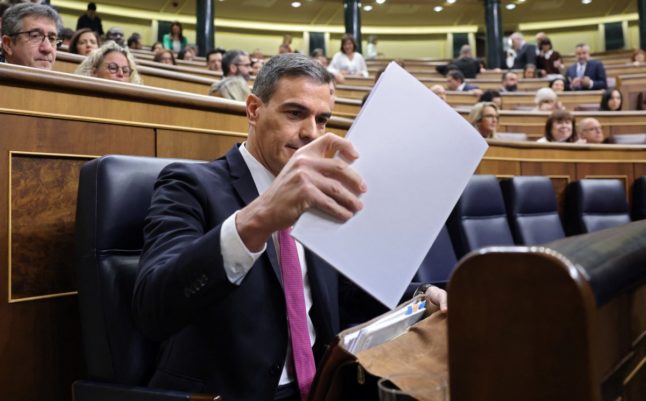If you live in Spain or take an interest in the country, Alberto Núñez Feijóo is a name you’ll no doubt be hearing and reading a lot in the coming weeks.
Born in Galicia in 1961, Feijóo (as his name is usually shortened to) has been the conservative leader of the rainswept northwestern region for a record four terms and is now the national head of the conservative Partido Popular.
READ ALSO: Who is Alberto Núñez Feijóo?
If the polls turn out to be accurate, he will be Spain’s next Prime Minister in late July.
So non-Spanish speakers may soon be wondering how to correctly pronounce his long-winded name, which includes the quintessential Spanish Ñ letter, and two accents.
So let’s break it down in detail first, and further down we’ll explain how to pronounce it all together if you’re an English speaker.
Alberto is of course the most straightforward part of his name, although English speakers should avoid adding an ‘ou’ sound to the final ‘o’, as vowels in Spanish are pronounced differently to how they are in English.
So in the same way as it’s Pedro not ‘Pedrou’, Enrique not ‘Enrikei’, it’s Alberto not ‘Albertou’.
To pronounce the Spanish O correctly, your lips should be slightly rounded (yep, in an ‘o’ shape) and the back part of your tongue should get close to your soft palate. Think of how you pronounce the ‘o’ in hot or not, rather than the ‘ou’ sound of low.
Núñez is his first surname, as Spaniards always have two. The accent on the U indicates that the emphasis should go on the first syllable.
Then there’s the ñ consonant, which is unique to Spanish. You have to place your tongue on the roof of your mouth right behind your teeth, say the letter ‘n’ and then ‘yah’.
Alternatively, you can replicate the ‘ñ’ sound by putting an ‘i’ sound after an ‘n’, so ‘ñe’ can be ‘nie’. It’s not perfect but close enough.
Then there’s the Spanish ‘z’ at the end of Núñez, which is more similar to the English ‘th’ sound in words like theft or thick.
Feijóo is perhaps the hardest part of the PP leader’s name, but also the one that’s used most often to refer to him as it is an usual surname and more distinguishable than the common name and surname Alberto and Núñez.
The double ‘o’ in Spanish isn’t pronounced in the same way as it is in English as in words such as zoo or loo. And because the first ‘o’ in Feijóo has an accent, the second one is virtually silent.
So the ‘jóo’ in his name is rather like saying hot in English but omitting the ‘t’ – ‘ho’.
To conclude, English speakers can pronounce Alberto Núñez Feijóo as follows (syllable that’s emphasised is in caps):
Al – BERT – o
NU – nie – th
Fay – HO



 Please whitelist us to continue reading.
Please whitelist us to continue reading.
Member comments